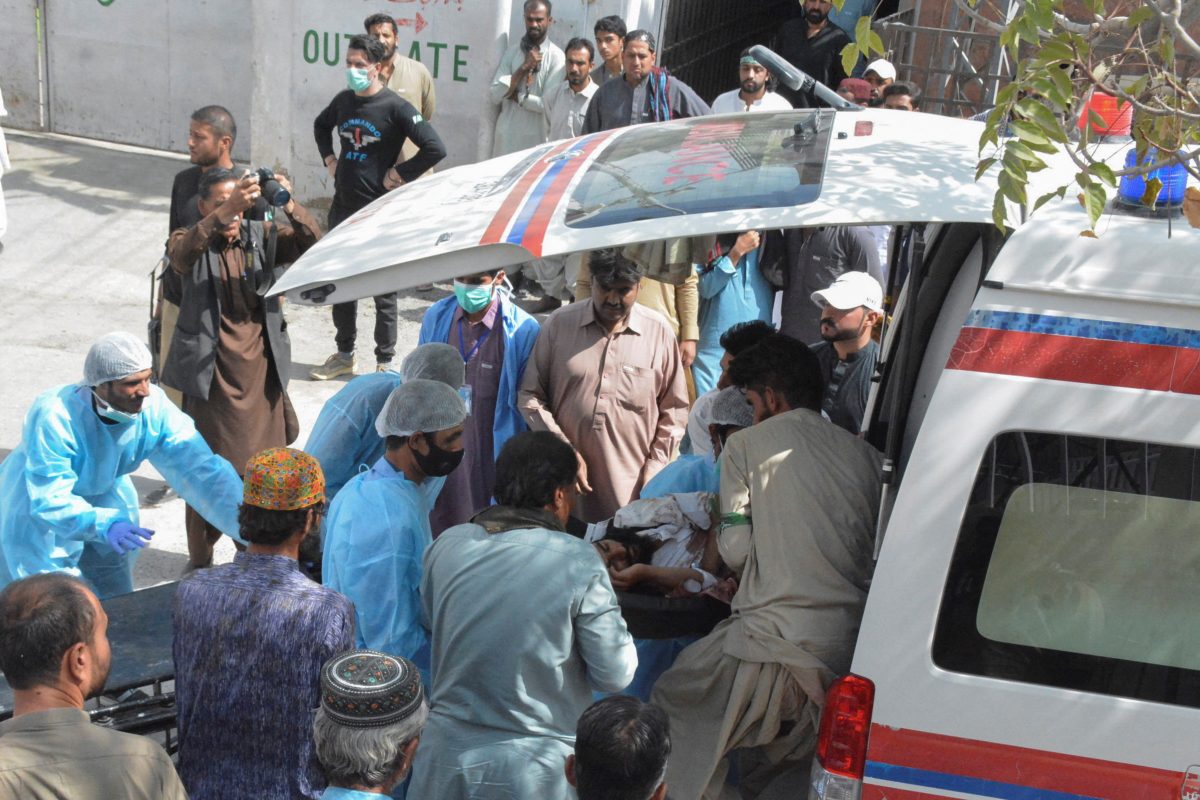QUETTA/PESHAWAR, Pakistan, (Reuters) – Suicide bombings ripped through two mosques in Pakistan today, killing at least 57 people and injuring more than 60 amid events marking the birthday of the Prophet Mohammed, police and health officials said.
No group has claimed responsibility for the blasts, one of which trapped dozens of people under rubble, media said. A surge in militant attacks has raised the stakes for security forces ahead of general elections set for January.
The first blast, in the southwestern province of Balochistan, killed 52 people, according to a district health official, Abdul Rasheed.
“The bomber detonated himself near a police vehicle near Madina Mosque where people were gathering for a procession,” added senior police official Munir Ahmed.
The second attack, in neighbouring northwestern Khyber Pakhtunkhwa, killed five people at a mosque, according to rescue officials. The mosque roof collapsed, broadcaster Geo News said, trapping about 30 to 40 people under the rubble.
The attack involved two explosions, one of which was at the mosque gate and the other in the compound, an official said.
“Luckily one blast was at the gate so worshippers were able to exit the mosque; as a result the casualties are low,” the deputy commissioner of Hangu district, Fazal Akbar, said.
Both provinces border Afghanistan and have suffered attacks in recent years by Islamist militants, who aim to overthrow Pakistan’s government and install their own brand of strict Islamic law.
The Balochistan blast is a rare attack on civilians as Islamist militants have largely targeted security forces in the recent surge of attacks.
Television images showed hundreds of people helping the injured into ambulances in its aftermath. At least 58 people were wounded, said Abdul Rasheed, the health official, adding that the toll could rise as many of the injuries were serious.
Militant attacks have surged since 2022 when a ceasefire broke down between the government and the Tehreek-e-Taliban Pakistan (TTP), an umbrella body of hardline Sunni Islamist groups.
The TTP, responsible for some of the bloodiest attacks in Pakistan since its formation in 2007, denied responsibility for Friday’s blasts. Previous attacks denied by the outfit have been claimed by splinter organisation loosely linked with them.
TTP denied invlovement in a Peshawar police mosque bombing in January that killed 100 people, but a faction of the umbrella group later claimed the attack.
In July, more than 40 people were killed in a suicide bombing in Khyber Pakhtunkhwa at a religious political party’s gathering. The Islamic State militant group claimed responsibility for that attack.







